
When it comes to your home’s electrical system, small problems can turn into major headaches—or worse, fire hazards—if left unchecked. But how do you know if your home’s wiring or circuits are on the fritz? Here are 15 early warning signs that can prevent you from incurring costly repairs and dangerous electrical hazards.
Frequent Circuit Breaker Trips

Should your circuit breaker trip repeatedly, it’s a red flag waving in your face! Frequent trips can indicate that your circuits are overloaded or that there may be a short circuit somewhere in your wiring. Contact an electrician to determine the electrical load requirements and recommend upgrades or repairs.
Dimming or Flickering Lights

Have you experienced the annoyance of flickering or dimming lights when you switch on an appliance? It is a sign that your electrical system might be unable to handle the load. Dimming lights can indicate loose wiring or an overloaded circuit, which could lead to overheating and potential fire hazards.
Blackened Sockets and Switches

Seeing black marks around your outlets or switches and ignoring them could lead to catastrophic consequences. These scorch marks are often caused by overheating due to poor connections or faulty wiring. They need immediate attention, so if you spot any blackened areas, stop using that outlet and check with an electrician.
Buzzing Sounds from Outlets

If you hear buzzing or crackling sounds from your outlets, unplug any devices connected to the outlet and call an electrician. These noises often indicate loose wires or faulty connections. Through prolonged use, wires can start to loosen because of regular use or incorrect installation, leading to arcing—a major fire risk.
Shocking Sockets and Switches

Experiencing electric shocks when touching outlets or switches is a clear warning sign that something is seriously wrong! This could be due to improper grounding or faulty wiring, which pose significant electrocution risks. If you feel even the slightest tingle, avoid using that outlet until a professional has inspected it.
Burning Smell

A burning smell from any electrical device or outlet in your home usually indicates malfunctioning appliances or overheating wires and components that could ignite into flames. This odor typically arises from burning insulation on cables due to overloaded circuits where too many devices draw power from a single outlet.
Hot Outlets
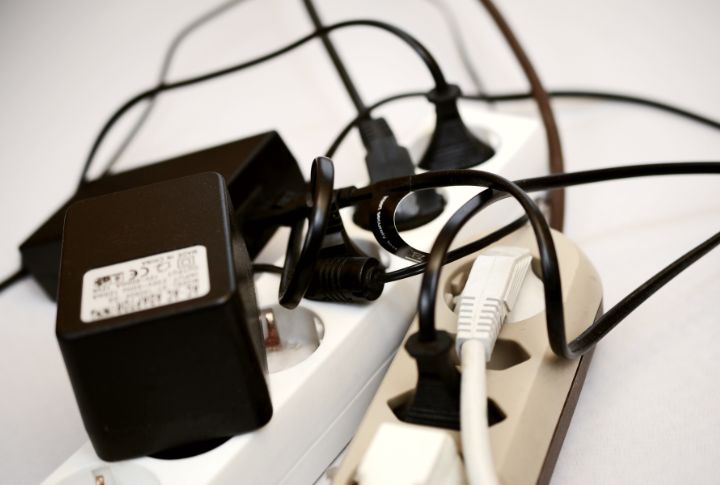
You should never find an outlet feeling warm or hot; if it does, it’s a sign of impending doom! Overheating outlets can result from overloaded circuits or faulty wiring, leading to potential fire hazards. Regularly checking your outlets for damage and ensuring they are not overloaded can help prevent these dangerous situations.
Loose Outlets

When an outlet is loose, plugs can fall out or create a poor connection, which may lead to a dangerous situation where electricity jumps between wires instead of flowing through them properly. This increases the risk of fire and poses shock hazards for anyone using the outlet.
Frayed or Chewed Wiring
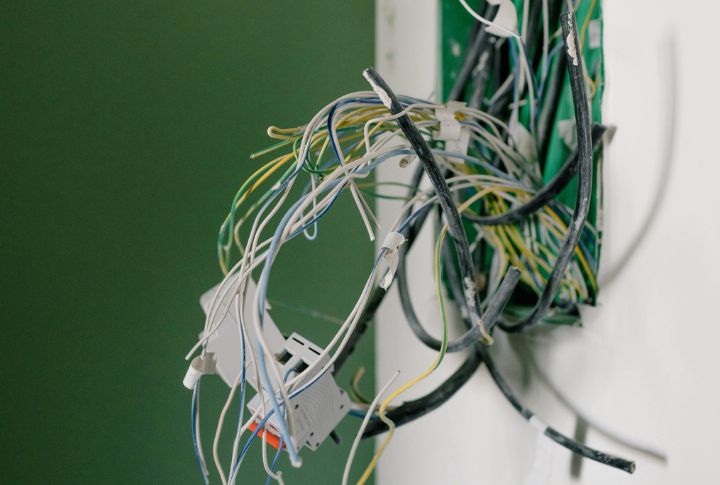
Damaged wiring is one of the most significant hazards in any home. It can lead to electrical shocks, which are particularly dangerous if you come into contact with it while standing on a wet surface. It may also enhance the possibility of experiencing an electrical fire in your home after contacting flammable materials.
Sparks from Outlets
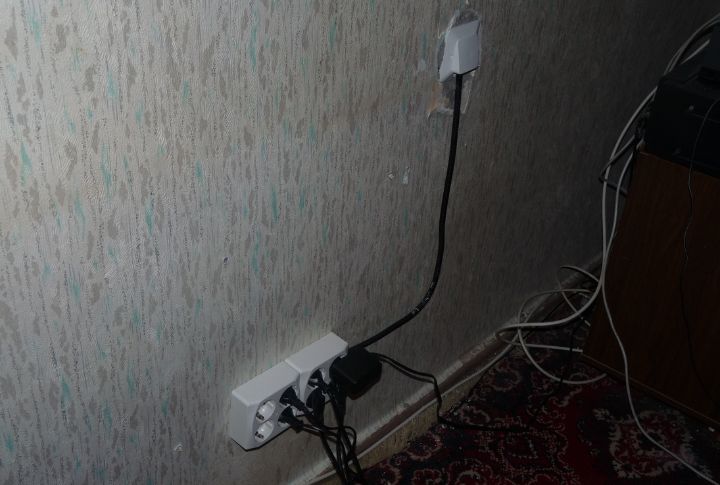
Seeing sparks when plugging in devices is downright dangerous. Sparks are often signs of loose connections or damaged wiring within the outlet, which can lead to severe problems. If you notice any sparking, especially with a burning smell or visible smoke, you must catch the issue early and save yourself from electrical fires.
Inconsistent Power Supply

Are your lights flickering when you turn on an appliance or do certain outlets stop working randomly? This inconsistent power supply can be a frustrating sign of underlying electrical issues like overloaded circuits, outdated systems, or faulty wiring. These complications can lead to spikes and drops in power.
Visible Damage to Electrical Panels
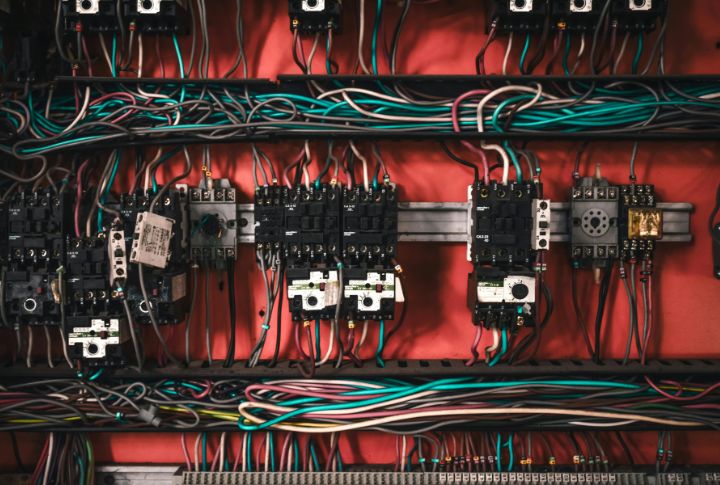
Your electrical panel represents the heart of your home’s electrical system; if it’s damaged or showing signs of wear—like rust or corrosion—it needs urgent attention! A compromised panel can lead to overloads and shorts that put your entire home at risk for fire hazards.
Unusual Appliance Behavior

Appliances require a consistent power supply, and they may fail altogether if they’re not getting it. If appliances start behaving oddly—turning off unexpectedly, overheating, or working less efficiently—it’s often a signal of electrical trouble. Do not dismiss these malfunctions as wear and tear and instead seek professional help.
Overuse of Extension Cords
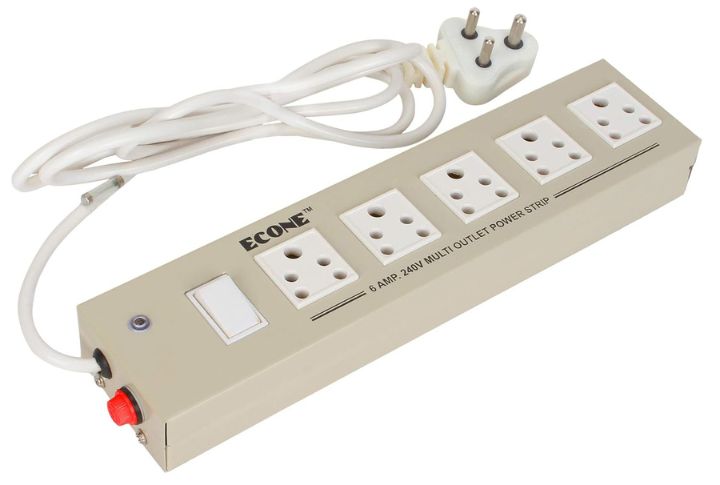
While extension cords are handy for temporary fixes, relying on them too much can lead to overloads and potential fire hazards. If you find yourself constantly reaching for extension cords, consider having additional outlets installed by an electrician instead—your safety depends on it!
Frequent Blown Fuses
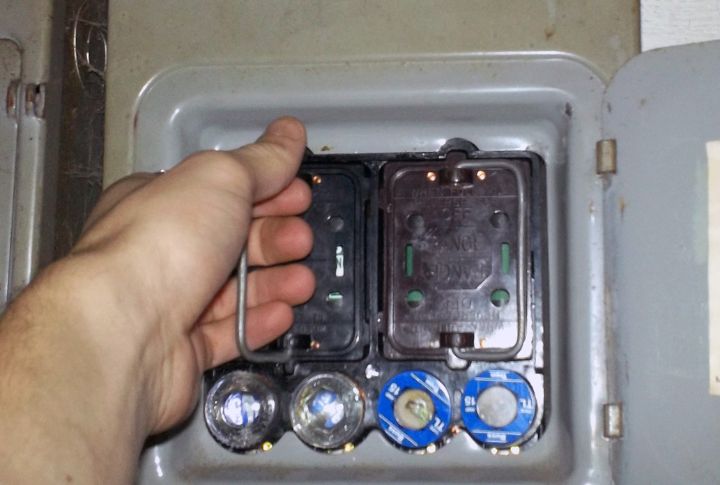
When circuits are overloaded, or there’s a short, the fuse blows as a safety measure to prevent overheating and fires. While replacing a fuse may seem like a quick fix, repeated instances suggest a deeper issue, such as outdated wiring, an overworked circuit, or appliances drawing more power than the system can handle.

